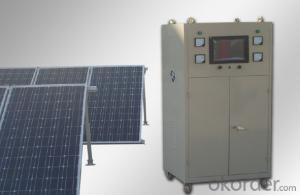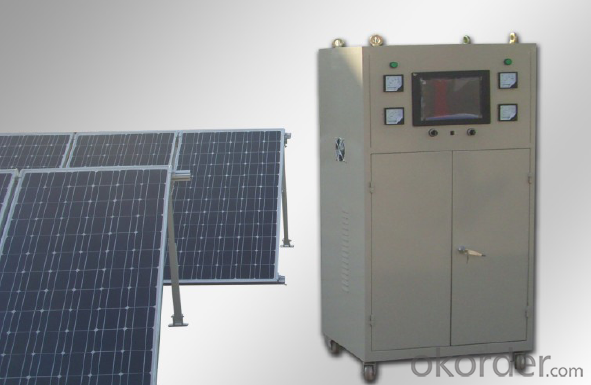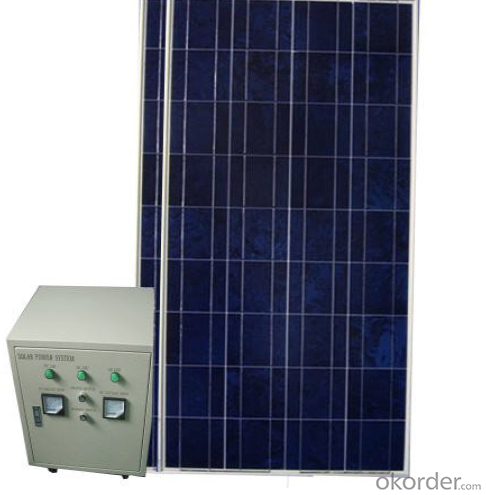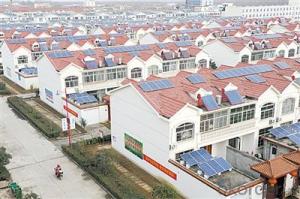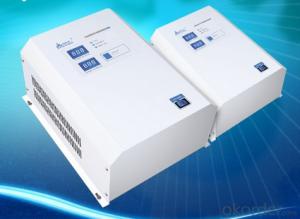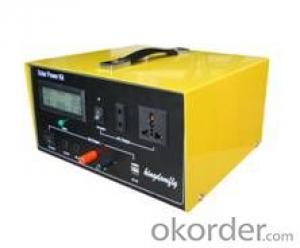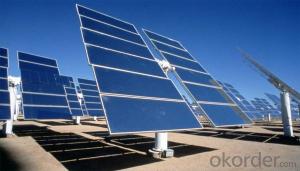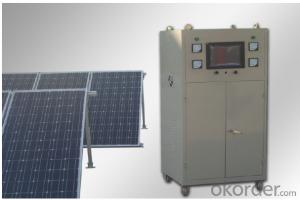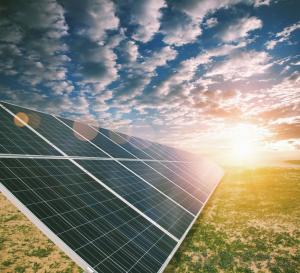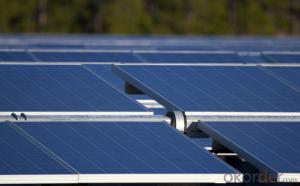Utah Solar Energy Systems - CNBM-K8 5kW Solar Home System
- Loading Port:
- China main port
- Payment Terms:
- TT OR LC
- Min Order Qty:
- 1 watt
- Supply Capability:
- 100000000 watt/month
OKorder Service Pledge
OKorder Financial Service
You Might Also Like
Specification
Description:
CNBM Solar is a world-leading and Vertical integrated manufacturer ofhigh-performance with Silicon,
Wafer, Cells, Modules, which convertsunlight into electricity for residential, commercial, and utility-scale
power generation.
The capacity of CNBMSolar is reach to 1GW, andmake sure each year our shipment capacity is more
Than 700-800MWs, at the same time, wehave set up the largest solar power station with our partner
in Ukraine.
CNBM is a Quality + Service orientedcompany with“Excellence at Each Step” approach, composed of
the finest components from TUV andIEC-certified partners around the world, CNBM modules consistently
undergo a variety of trials at thecompany’s Test & Development Centre, ensuring peak performance
capabilities. The company iscommitted to develop and provide the world with clean and renewable energy
to ease the energy shortages as wellas human kind’s impact on the environment.
Data:
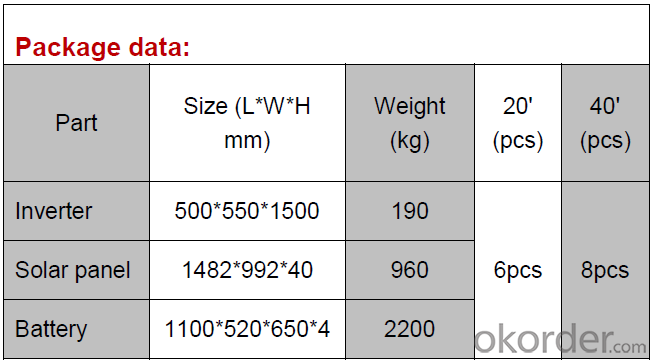
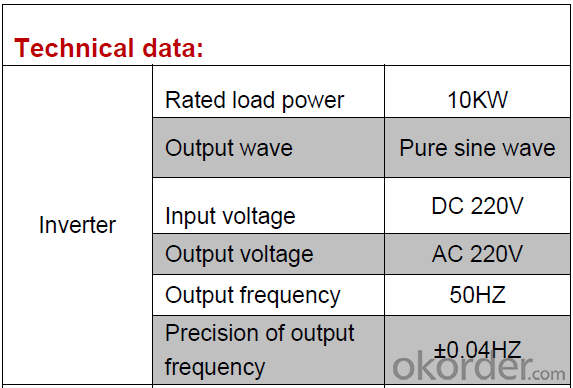
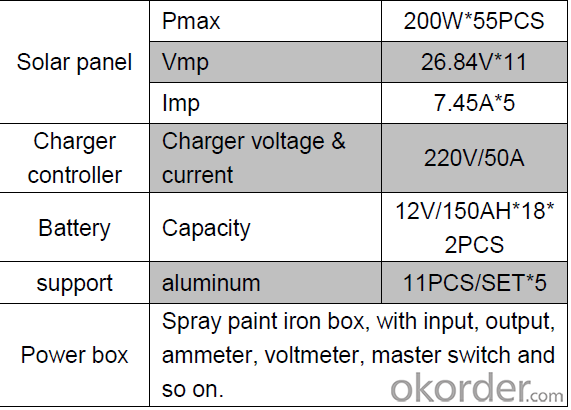
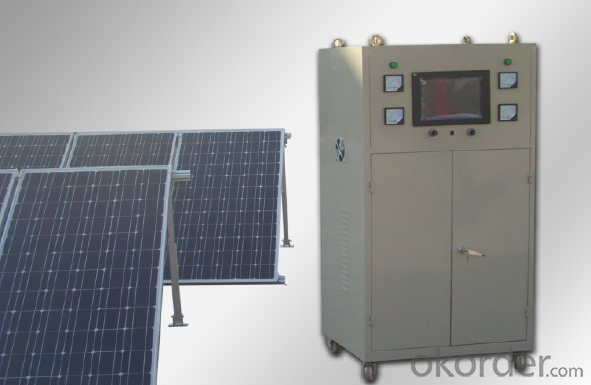
FAQ:How long can we receive the product after purchase?
In the purchase of product within three working days, We will arrange the factory delivery as soon as possible. The pecific time of receiving is related to the state and position of customers.Commonly 7 to 10 working days can be served.
- Q: How much money can I save with solar energy?
- The amount of money you can save with solar energy depends on various factors such as the size of your solar system, your energy consumption, the cost of electricity in your area, and any available incentives or tax credits. On average, homeowners can save thousands of dollars over the lifetime of their solar panels, with some even achieving complete energy independence and eliminating their electricity bills.
- Q: Can solar energy systems be used in powering construction sites or temporary structures?
- Solar energy systems are certainly capable of powering construction sites or temporary structures. In fact, the utilization of solar power in these situations is growing due to its many advantages. To begin with, construction sites often lack access to conventional power sources, making solar energy a practical solution. Solar panels can be easily installed on rooftops, scaffolding, or even on the ground, providing a dependable source of electricity throughout the construction process. Moreover, solar energy systems offer flexibility in power generation. They can be tailored to meet the specific energy demands of construction sites, whether it be for powering tools, lighting, or charging equipment. This adaptability ensures that construction activities can proceed seamlessly without any disruptions. Additionally, solar energy systems are environmentally friendly. By harnessing energy from the sun, construction sites can significantly reduce their carbon footprint and contribute to sustainable practices. Solar power does not generate harmful emissions or noise pollution, which is particularly advantageous in urban areas or sensitive environments. Furthermore, solar energy systems provide long-term cost savings. Although the initial investment for installing solar panels might be higher compared to traditional generators, the ongoing operational costs are substantially lower. Construction sites can benefit from reduced fuel expenses, maintenance costs, and a reduced reliance on fossil fuels. It is worth noting that solar energy systems can also be utilized for temporary structures such as mobile offices, portable restrooms, or event venues. These structures can be conveniently powered using solar panels, eliminating the need for generators or grid connections. In conclusion, solar energy systems are a practical and sustainable choice for powering construction sites and temporary structures. They offer reliable, customizable, and cost-effective power solutions while minimizing the impact on the environment. As the global shift towards renewable energy continues, solar power is likely to become even more prevalent in the construction industry.
- Q: How do solar energy systems affect air pollution?
- Solar energy systems have a positive impact on air pollution as they generate electricity without emitting any harmful greenhouse gases or pollutants. By replacing traditional fossil fuel sources, solar energy helps to reduce air pollution, improve air quality, and mitigate climate change.
- Q: What is the difference between a solar power purchase agreement (PPA) and a solar lease?
- A solar power purchase agreement (PPA) involves a contractual agreement between a solar energy provider and a consumer, where the consumer agrees to purchase the electricity generated by the solar system at a predetermined rate over a specified period of time. On the other hand, a solar lease is a contract that allows a consumer to lease a solar energy system from a provider, paying a fixed monthly fee to use the system and benefit from the electricity it generates. The main difference between the two is that in a PPA, the consumer only pays for the electricity they consume, while in a solar lease, they pay a fixed monthly amount regardless of the amount of electricity generated. Additionally, in a PPA, the provider is responsible for the installation, maintenance, and operation of the solar system, whereas in a solar lease, the consumer is typically responsible for the maintenance and operation.
- Q: Can solar energy systems be used in remote locations?
- Yes, solar energy systems can be used in remote locations. Unlike traditional power sources, solar energy systems do not require a direct connection to the electricity grid. They can operate independently by harnessing the power of sunlight and converting it into usable electricity. This makes solar energy systems a viable and efficient option for powering remote locations where grid access is limited or non-existent.
- Q: How do solar energy systems impact water resources?
- Solar energy systems have a positive impact on water resources as they do not require water for their operation, unlike traditional energy sources such as coal or nuclear power plants. This helps in conserving water, which is a precious resource, and reduces the strain on water supplies. Additionally, solar energy systems can be utilized to power water treatment plants, enhancing access to clean and safe water in remote areas.
- Q: What government incentives are available for solar energy systems?
- Solar energy systems are supported by a range of government incentives, encouraging the adoption of renewable energy sources by individuals and businesses. One notable incentive is the federal Investment Tax Credit (ITC), which grants a tax credit of up to 26% of the installation cost. This credit significantly reduces the initial expenses associated with installing solar panels. Moreover, numerous states provide their own incentives to promote solar energy adoption. These can include state tax credits, rebates, grants, or low-interest loans specifically tailored for solar installations. The availability and extent of these incentives vary by state, so it is essential to conduct thorough research on the specific programs offered in your area. Another incentive, known as net metering, allows solar energy system owners to accrue credits for excess electricity generated and fed back into the grid. This means that when your solar panels produce more electricity than you consume, the surplus energy is sent back to the grid, resulting in a credit on your utility bill. Net metering policies differ by state, but they can substantially reduce your electricity costs and even generate income in certain cases. Furthermore, some local governments offer property tax exemptions or abatements for solar energy systems, alleviating the property tax burden for those who install solar panels. This can yield long-term financial benefits and enhance the overall return on investment for solar energy system owners. Lastly, various grants and incentives are available for nonprofit organizations, schools, and government entities aiming to install solar energy systems. These programs seek to foster the adoption of clean energy in public buildings and institutions, thereby decreasing their carbon footprint and energy expenses. It is crucial to note that the availability and particulars of these government incentives may change over time. Therefore, it is advisable to consult with local solar installers, government agencies, or professional tax advisors to ensure you fully capitalize on the incentives available in your area.
- Q: What are the different mounting options for solar panels?
- The different mounting options for solar panels include roof-mounted, ground-mounted, pole-mounted, and tracking systems. Roof-mounted systems are the most common and are installed on the roof of a building. Ground-mounted systems are installed on the ground using a fixed structure or a tracking system. Pole-mounted systems are mounted on poles and can be adjusted for optimal sun exposure. Tracking systems allow solar panels to move and follow the sun's path throughout the day, maximizing energy production.
- Q: Can solar energy systems be used for heating and cooling a home?
- Yes, solar energy systems can be used for heating and cooling a home. Solar heating systems, such as solar thermal collectors or solar water heaters, can be used to heat water or air for space heating purposes. Additionally, solar air conditioning systems, such as solar-powered absorption or desiccant cooling systems, can be used to cool a home using the energy from the sun.
- Q: Can solar energy systems be used in areas with high levels of saltwater exposure?
- Yes, solar energy systems can be used in areas with high levels of saltwater exposure. However, it is important to choose the right materials and components that are resistant to corrosion caused by saltwater. Additionally, regular maintenance and cleaning may be required to ensure optimal performance and longevity of the solar panels.
Send your message to us
Utah Solar Energy Systems - CNBM-K8 5kW Solar Home System
- Loading Port:
- China main port
- Payment Terms:
- TT OR LC
- Min Order Qty:
- 1 watt
- Supply Capability:
- 100000000 watt/month
OKorder Service Pledge
OKorder Financial Service
Similar products
Hot products
Hot Searches
Related keywords
